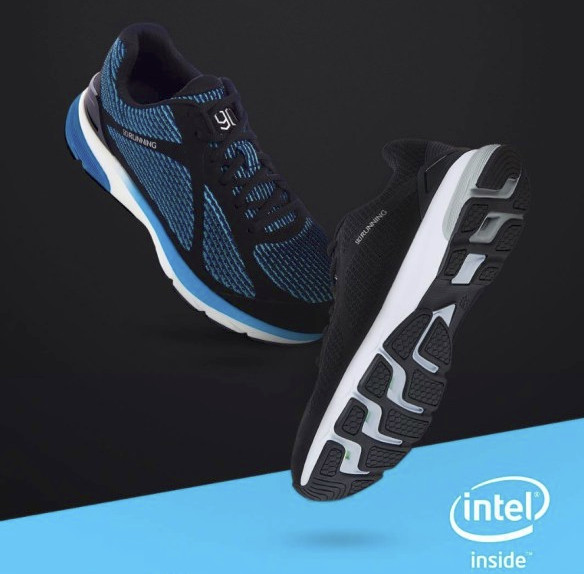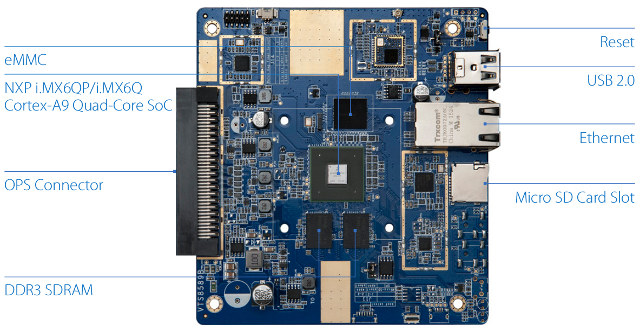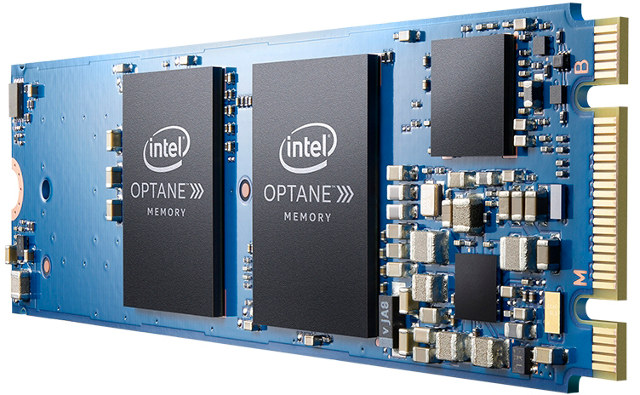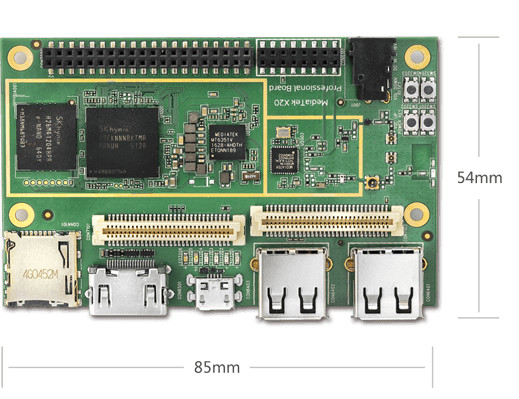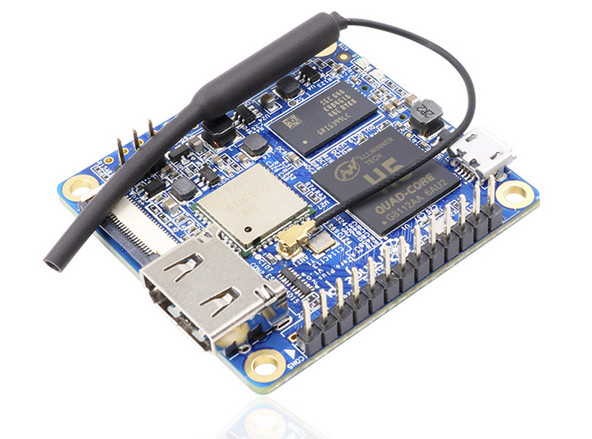Samsung has finally launched their latest Galaxy S8 and S8+ smartphones powered by Qualcomm Snapdragon 835 or Exynos 8895 processor, 5.8″ and 6.2″ screens , and some of the most interesting features include the “infinity screen” with ultra thin bezels, Samsung DeX allowing for a desktop experience on a large monitor when the phone is docked, as well as Bixby assistant. Samsung Galaxy S8/S8+ specifications: SoC (one or the other depending on markets) Qualcomm Snapdragon 835 octa-core processor with four Kryo 280 cores @ 2.3 GHz, four Kryo 280 cores @ 1.7 Ghz;; Adreno 540 GPU; 10nm process Samsung Exynos 8895 octa-core processor with four M2+ cores @ 2.35 GHz, four Cortex A53 cores @ 1.9 GHz, ARM Mali-G71 GPU; 10nm process System Memory – 4GB LPDDR4 Storage – 64GB UFS 2.0 flash; micro SD up to 256 GB Display Galaxy S8 – 5.8” quad HD+ (2960×1440), (570ppi) Galaxy S8+ […]
$100 Xiaomi “90 Minutes Ultra Smart Running Shoes” are Equipped with Intel Curie Module
If you’ve ever used a fitness tracker on a wristband, you must know that although it gives an indication of your level of activity, it’s usually not really accurate to count steps. Xiaomi’s “90 Minutes ultra smart running shoes” fixes the issue as the fitness tracker powered by Intel Curie module is placed right inside the shoes. Most of the information is in Chinese, and I could only find limited specifications for the shoes: Size – 39 to 45 Intel Curie Module based on Quark SE SoC with 6-axis accelerometer and gyroscope, Bluetooth 4.0 LE connectivity Battery – Good for 60 days on a charge Material Shoe sole – Rubber Shoe vamp – Fabric + Synthetic leather Shoe insole – Antibacterial removable air cushions The small device based on Intel Curie module resides inside the sole, stores fitness data such steps, distance covered, speed, (estimated) calories burnt, etc… It’s unclear […]
VIA VTS-8589 OPS Board Powered by NXP i.MX 6 ARM Processor Complies with Intel’s OPS Digital Signage Specifications
Intel introduced the Open Pluggable Specifications (OPS) defining mechanical and electrical requirements for boards used in digital signage back in 2010. Since then there has been a few Intel OPS boards launched on the market, and the company introduced OPS+ specifications with support for simultaneous display and broadcast usages, 8K resolution displays, and the ability to drive three individual 4K resolution display outputs. VIA has now launched VTS-8589 OPS board compliant with the older specifications, and featuring NXP i.MX6 quad core ARM Cortex A9 processor combined with 2GB RAM, 8GB flash, and more. VIA VTS-8589 OPS has two version of the board with the following specifications: SoC VTS-8589-QP model – NXP i.MX 6QuadPlus quad ARM Cortex-A9 processor @ 1.0 GHz with Vivante GC2000+ GPU supporting OpenGL ES 3.0, OpenCL and OpenVG 1.1, 512KB embedded SRAM VTS-8589 model – NXP i.MX 6Quad quad ARM Cortex-A9 processor @ 1.0 GHz with Vivante GC2000 […]
isorespin.sh Script Updates Ubuntu ISO Files with Mainline Linux Kernel
Devices based on Intel Bay Trail and Cherry Trail processors have been popular due to their integration into low cost system (for an Intel platform), but Intel did not prioritize Linux development for those processors, so while Linux could run, you’d have various problems with HDMI audio, system freezes, and wireless drivers, unless you used a custom kernel. The goods news is that Linux 4.11 will feature fixes for HDMI audio and system freeze, and so you won’t need a custom kernel anymore. Ian Morrison (Linuxium), who has been working on improving Linux for those devices since they were first released, has now released isorespin.sh script to automatically update any Ubuntu ISO image to the latest mainline Linux RC kernel built by Canonical, but not integrated by default in the ISO. Once you’ve downloaded isorepin.sh and your ISO of choice, e.g. ubuntu-16.04.2-desktop-amd64.iso, you can update the ISO with mainline Linux […]
FalconGate Open Source Anti-Hackers Smart Gateway Runs on Raspberry Pi, Banana Pi, and other ARM Debian Boards
Everyday we can read stories about password database hacking, malware, ransomware, and so on, and companies can try to protect themselves by paying professionals that do a more or less good jobs, but individuals can’t afford professional service, so it is harder to protect oneself. One solution is to educate yourself as much as possible, but everybody has the time and/or skills to do it, so developers have worked on FalconGate open source smart gateway that’s supposed to protect home devices against hackers, and alerts the user in case of intrusions on your home network, or devices misbehaving. FalconGate is said to be able to: Block several types of Malware based on open source blacklists Block Malware using the Tor network Detect and report potential Malware DNS requests based on VirusTotal reports Detect and report the presence of Malware executables and other components based on VirusTotal reports Detect and report […]
Intel to Launch Optane Memory M.2 Cards for Desktop PCs Next Month for $44 and Up
Intel launched their first Optane SSD based on 3D Xpoint technology for the enterprise/datacenter market last week, and now the company has announced 16GB and 32GB consumer grade Optane memory will start selling in April starting at $44. The cards will follow M.2 card (80mm) form factor, use a dual PCIe NVMe 3.0 interface, and currently only works with Optane compatible motherboards with 7th generation Intel Core processors. Intel promises boot times that are twice as fast, 28% better overall performance, and 65% faster game level loads thanks to vastly improved random I/O performance. We can see some of the specs for both cards on Intel website. I reproduced some of the performance reliability data in the table below. 32GB Optane Memory 16GB Optane Memory Sequential Read (up to) Up to 1350 MB/s Up to 900 MB/s Sequential Write (up to) Up to 290 MB/s Up to 145 MB/s Random […]
ArcherMind Mediatek X20 Pro Development Board Adds 3G, 4G LTE and More I/Os
Archermind launched Mediatek X20 board powered by Mediatek Helio X20 deca-core processor, and compliant with 96Boards CE hardware specifications last year for $199. The company has now been working on a “professional” version, dubbed Mediatek X20 Pro that adds supports for 3G and 4G / LTE, as well as extra I/O connectors for cameras, LCD modules, and an RF baseboard. Alpha Star Mediatek X20 Pro board specifications: SoC – Mediatek Helio X20 (MT6797) deca-core processor with two ARM Cortex A72 cores @ 2.1~2.3 GHz, four Cortex A53 @ 1.85 GHz, four Cortex A53 @ 1.4 GHz, and ARM Mali-T880 GPU @ 700 MHz System Memory – 2GB LPDDR3 2-ch @ 933 MHz Storage – 8GB eMMC 5.1 flash + micro SD 3.0 card slot Video Output – HDMI up to 1080p @ 30 fps Video Support – 25MP @ 24fps / 25MP @ 30 fps; WQXGA 2560×1600 60fps; FHD 1920×1080 […]
Orange Pi Zero Plus 2 H5 Board Replaces Allwinner H3 by Allwinner H5 for $1 More
It’s hard to keep up, but Shenzhen Xunlong has launched another Orange Pi board, as two weeks after introducing Orange Pi Zero Plus 2 development board, the company has now introduced “Orange Pi Zero Plus 2 H5” board, with the exact same specification, except Allwinner H3 quad core Cortex A7 32-bit processor has been replaced by Allwinner H5 quad core Cortex A53 64-bit processor. Orange Pi Zero Plus 2 H5 board specifications: SoC – Allwinner H5 quad core Cortex A53 processor with 2+4 core Mali-450MP4 GPU System Memory – 512 MB DDR3 SDRAM Storage – 8GB eMMC flash + micro SD card slot Video Output – HDMI port Connectivity – 802.11 b/g/n WiFi + Bluetooth 4.0 LE (Ampak AP6212) with u.FL antenna connector and external antenna USB – 1x micro USB OTG port Camera – MIPI CSI port Expansion headers – Unpopulated 26-pin “Raspberry Pi B+” header + 13-pin header […]



